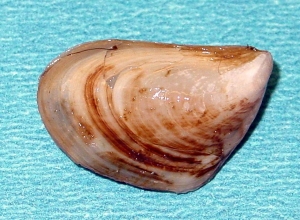
Welcome! Click on a tab below to find books, articles, and websites for use in this course.
You'll need a College of DuPage Library card in order to use most of these resources from off campus.
Questions? Feel free to contact me, stop by the Reference Desk, or contact us by email or chat Want to know more about the COD library? Check out our orientation video.
Finding (and Narrowing) a Topic
Have a glimmer of a topic that you'd like to work on? Great! You'll want to work to narrow that topic a bit before you dive into the catalog and databases, or you will be swamped with results. You can try the following strategies to narrow a topic:
- Visit CQ Researcher, a library database that summarizes current events into massive PDFs.
- Gale Virtual Reference Library has got great entries on many of your topics.
- A Google news search can give you headlines from around the world on topics like "invasive species Illinois."
Still Drawing a Blank?
The College of DuPage library has several print magazines/journals that you can browse through for inspiration. For example, try looking at headlines in:
- American Forests
- Mother Earth News
- Science News
- Audubon
Finding Articles in Databases
Scientific research can be best found in academic databases. Here are the top two databases to look for information.
Academic Search Complete has a mixture of popular and scholarly articles on a variety of subjects. You'll want to be sure that you're using a source appropriate for class when searching.
US Major Dailies has the full text of a number of the country's major newspapers. Make sure to limit to newspapers and sort by relevance when using the databases.
See the full list of biology databases.
Evaluating Websites
While you're doing Google searches to either narrow your topic or in order to dig up more information on certain subject, you want to be careful to decide if the information you find is trustworthy.
When it comes to science, nearly everyone has opinions: should we be labeling genetically modified food for consumer's awareness? What will fracking do for our economy or our groundwater supply? Your job is to evaluate the information you can find through Google and Bing to find the good websites--those written by authors you can trust, with good and up-to-date information.
Authorship: Who created this website? What is their background on the topic? Are they trustworthy?
Bias: Why was the website created? What point of view does the author have? Does that limit the facts they present or how the facts are presented?
Date: How old is the information that is presented? Is it still accurate?
Questions? Check out the COD Library's guide to evaluating information.
Class Exercise
Take a moment to look at your website. Is this information trustworthy? How do you know? Be prepared to tell your classmates your opinion.
Frequently Asked Questions on Genetically Modified Food
GMO Facts: Frequently Asked Questions
Genetically Modified Organisms (GMOs): Transgenic Crops and Recombinant DNA Technology
The Facts About GMOs
Finding Videos
Evaluate videos in the same way that you evaluate websites: thinking about Currency, Reliability, Authority, and Purpose/Point of View.
That said, there are some interesting youtube channels that you can check out for class:
- The EPA's Youtube Channel
- Purdue Extension offers some good videos
- The Sierra Club has a youtube channel, though you want to be sure to evaluate the information presented there.
- Google Videos has a large catche of videos mainly pulled from youtube, news channels, and blogs.
Using APA Style
Find directions about how to cite your sources on the library citation guide.
Most databases will have a Cite link that you can also click to get article citations.
Finally, you are welcome to use NoodleBib if you'd like to use a program to create and organize your citations. You must "Create a New Folder" when you use NoodleBIB for the first time. Click on "I am citing a(n):," choose the type of item you are citing, and then fill in the online form. Your bibliography will be formatted for you.
Further questions about APA style? Check out the APA Style Blog, which includes sample papers.